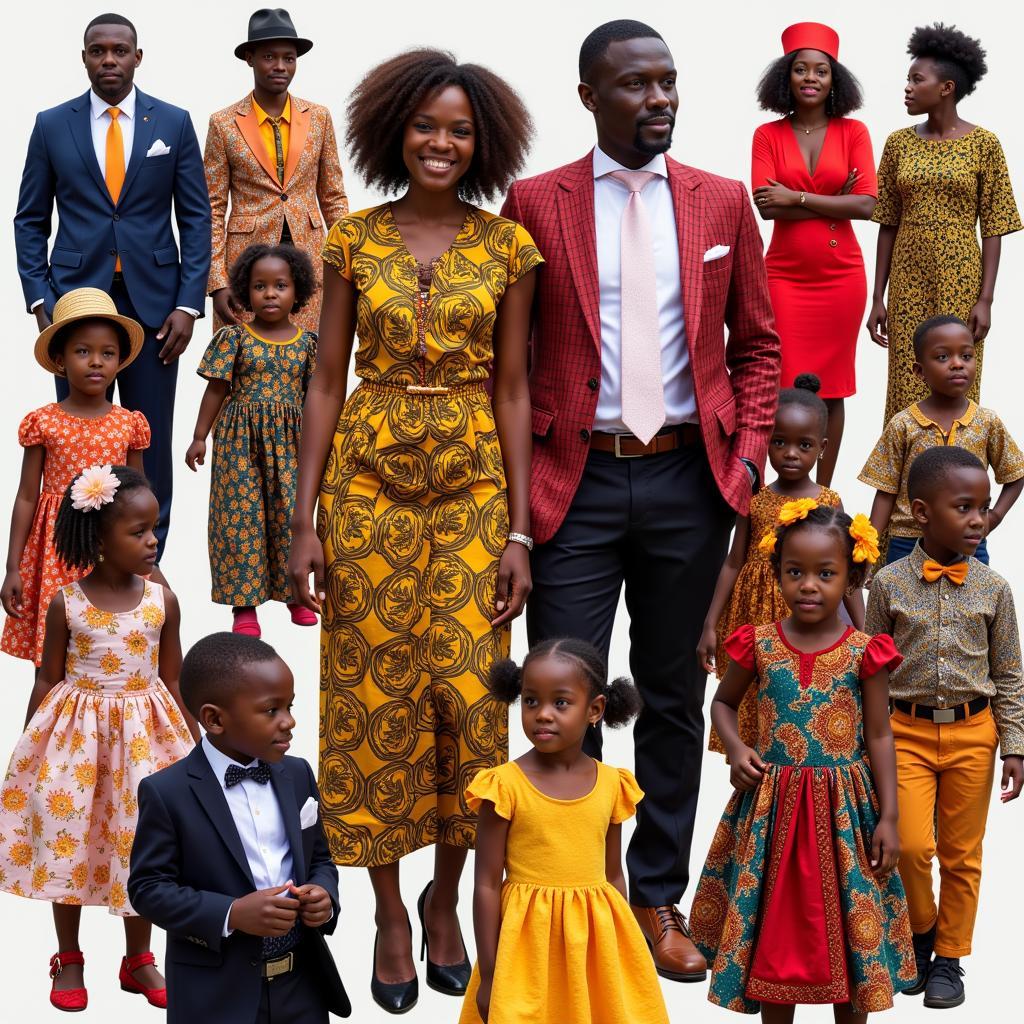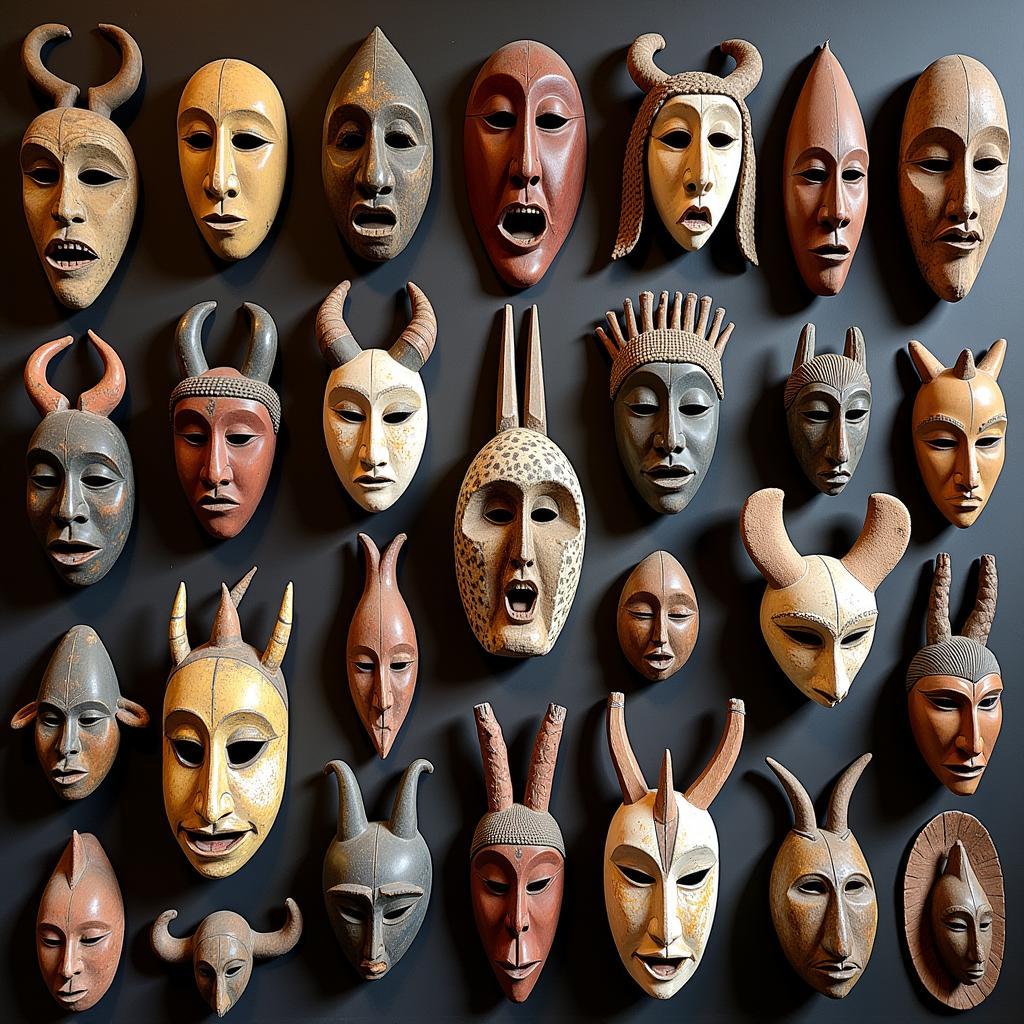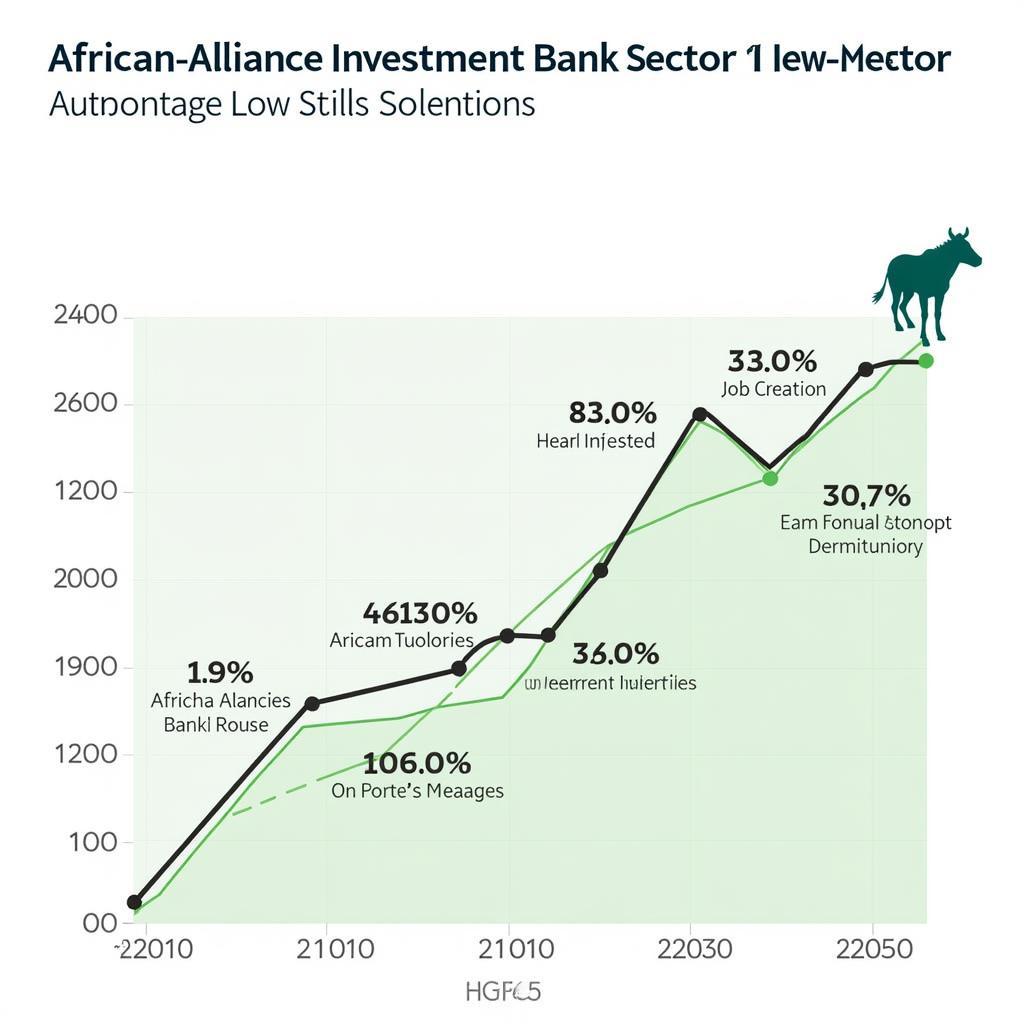Unveiling the World of African Children’s Literature: Themes, Trends, and Thesis Inspiration
African children’s literature, a vibrant and multifaceted tapestry woven from rich oral traditions and contemporary narratives, offers a unique lens through which to understand the continent’s diverse cultures, histories, and perspectives. This captivating literary landscape, often overlooked in global discourse, provides fertile ground for compelling thesis exploration.
Exploring the Rich Themes in African Children’s Literature
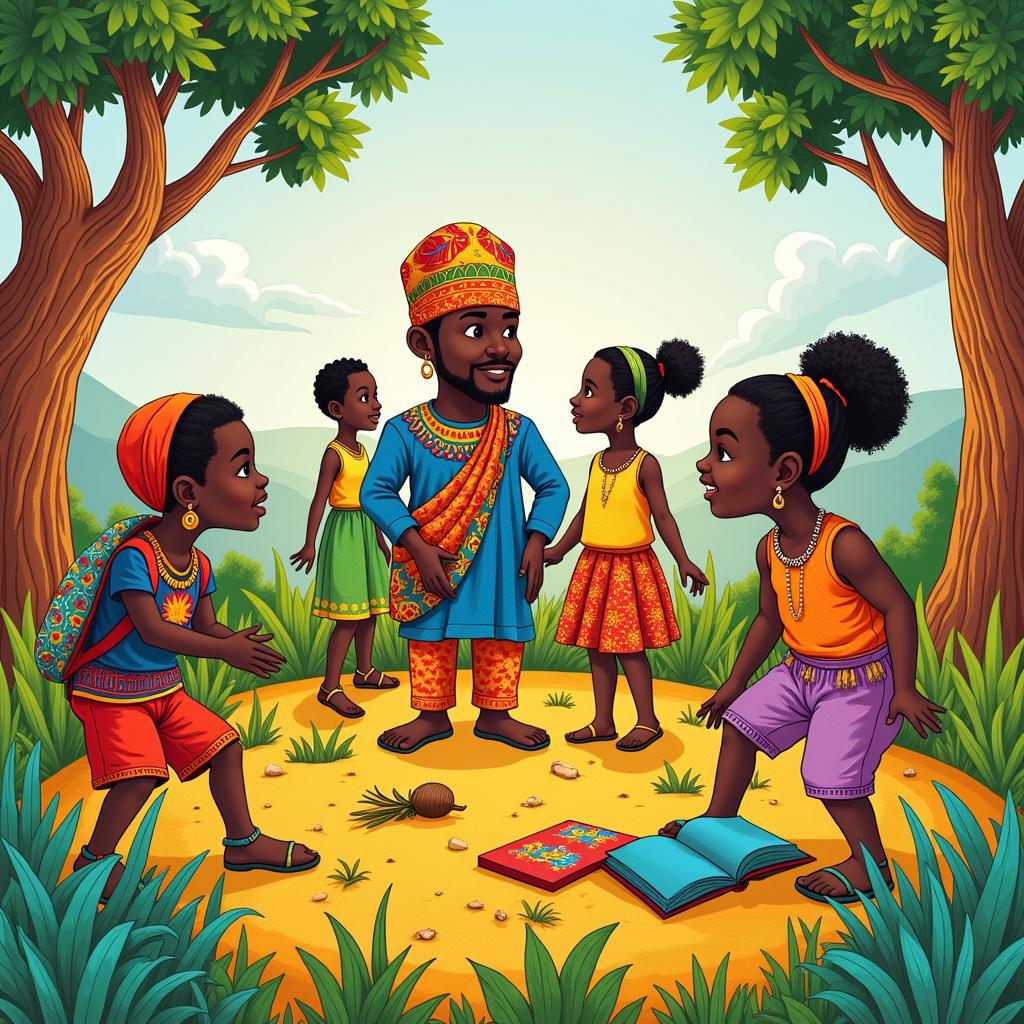 Children's book illustration depicting a vibrant African folktale scene
Children's book illustration depicting a vibrant African folktale scene
One of the most striking features of African children’s literature is its thematic richness. It delves into universal childhood experiences like friendship, family, and coming-of-age, but also confronts complex socio-political realities. Themes of colonialism and its enduring legacy, the HIV/AIDS epidemic, poverty, and gender inequality are woven into narratives that both entertain and educate.
The Power of Oral Tradition
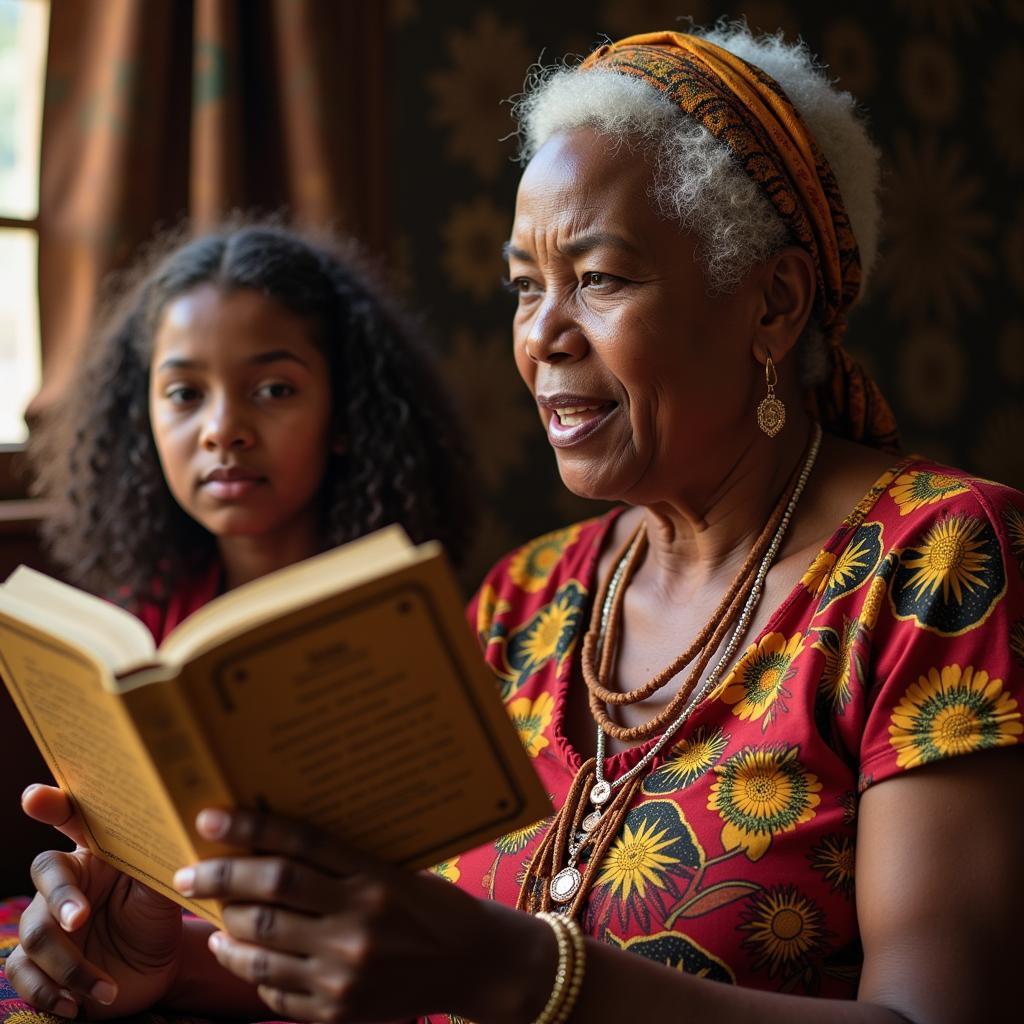 An African storyteller captivating young listeners under a Baobab tree
An African storyteller captivating young listeners under a Baobab tree
It’s impossible to discuss African children’s literature without acknowledging the profound influence of oral tradition. Folktales, myths, and legends, passed down through generations, form the bedrock of many written works. These stories, often featuring animal protagonists imbued with human qualities, impart moral lessons, cultural values, and a deep respect for the natural world.
A Growing Body of Contemporary Voices
While deeply rooted in tradition, African children’s literature is not static. A new generation of authors is emerging, bringing fresh perspectives and tackling contemporary issues head-on. These writers are challenging stereotypes, giving voice to marginalized communities, and exploring themes of identity, displacement, and globalization in a rapidly changing world.
Choosing a Thesis Topic: Where to Begin?
Embarking on a thesis journey in African children’s literature can be both exciting and daunting. Here are a few potential areas of exploration:
- The Evolution of Representation: How has the portrayal of African children in literature changed over time?
- The Role of Language: How do authors navigate the complexities of multilingualism and cultural identity in their writing?
- The Intersection of Gender and Culture: How are gender roles and expectations explored in African children’s literature?
- The Impact of Colonialism on Literary Themes: How has the legacy of colonialism shaped narratives and character development?
Conclusion: A Rich Tapestry of Stories Awaiting Exploration
African children’s literature offers a captivating blend of tradition and modernity, providing a rich source of inspiration for academic inquiry. By delving into its vibrant narratives, we can gain a deeper understanding of the African continent’s complexities, aspirations, and the power of storytelling to shape young minds.
